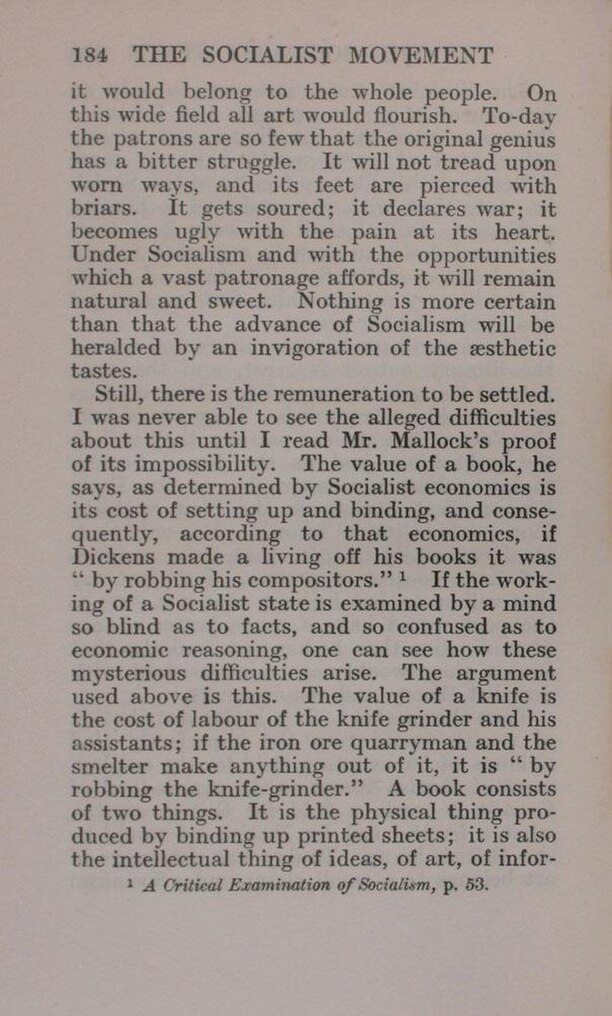it would belong to the whole people. On this wide field all art would flourish. To-day the patrons are so few that the original genius has a bitter struggle. It will not tread upon worn ways, and its feet are pierced with briars. It gets soured; it declares war; it becomes ugly with the pain at its heart. Under Socialism and with the opportunities which a vast patronage affords, it will remain natural and sweet. Nothing is more certain than that the advance of Socialism will be heralded by an invigoration of the æsthetic tastes.
Still, there is the remuneration to be settled. I was never able to see the alleged difficulties about this until I read Mr. Mallock's proof of its impossibility. The value of a book, he says, as determined by Socialist economics is its cost of setting up and binding, and consequently, according to that economics, if Dickens made a living off his books it was "by robbing his compositors."[1] If the working of a Socialist state is examined by a mind so blind as to facts, and so confused as to economic reasoning, one can see how these mysterious difficulties arise. The argument used above is this. The value of a knife is the cost of labour of the knife grinder and his assistants; if the iron ore quarryman and the smelter make anything out of it, it is "by robbing the knife-grinder.” A book consists of two things. It is the physical thing produced by binding up printed sheets; it is also the intellectual thing of ideas, of art, of infor-
- ↑ A Critical Examination of Socialism, p. 53.
